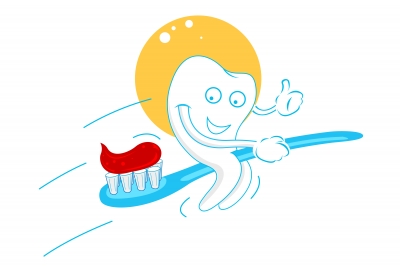The Difference Between Translators and Dentists
Else Gellinek
- February 26, 2014
- 6 min read
- Translation 101

Talking about translation quality: like pulling teeth?
Last week I received the rather unhappy news that I need to undergo some dental treatment. I hadn’t noticed anything wrong myself, and I definitely don’t like the idea, but after some grumbling I accepted the dentist’s verdict and will undergo the necessary treatment.
And that’s what I think most people do: We see a specialist for their specialist opinion. And even if we don’t particularly like their specialist opinion, we still heed it (or we go get a second opinion). This got me thinking again about my previous post on translation quality and how clients often react to our specialist opinions on the quality of translations they have been purchasing.
Why we need to focus on the benefits of translation quality
Dentists and translators (and all specialists) have quite a bit in common. We use our extensive knowledge and expertise to solve problems for our customers/clients/patients. Unfortunately, the perception of the different professions still varies considerably, leading to some noticeable differences.
Dental work is expensive, causes discomfort and can be quite time-consuming. In spite of that, we have it done all the time. I think this is because the benefits are so clear and so very personal to us as patients. Your teeth matter to you. Take care of your teeth and your teeth will take care of you. What’s more, we all know that ignoring small things adds up to a really costly and unpleasant treatment later. Fix that crumbling filling right now and it might spare you that scary root canal further down the road. And everyone appreciates a big shiny smile with healthy teeth. Dentists may not be the most popular people, but they’ve nailed their sales approach.
Translation is expensive and time-consuming just like dental work. We can make wonderful things happen for our customers by helping them effectively reach new target audiences. We are a lot less clear on relaying the benefits to our customers, though. And the benefits are often also much less tangible than fixing bad teeth. A vague sense that a better translation might be beneficial for business is clearly not enough to motivate higher spending on translation quality. Obviously, we translators need to work on our sales pitch. If we can show our clients that excellent translations are vital for the health of their business, they might be more willing to commit. The criteria that matter to us in a translation are not always obvious or interesting for them. It’s time to start speaking their language. The way it is now, translation quality doesn’t always matter as much to our customers as we would like.
Translators as semi-specialists
We can’t really judge what dentists are doing, or how well they are doing it – unless something goes very wrong. We have to rely on their professional expertise.
We would never consider taking on dental work ourselves. Dentists are specialists who have gone through rigorous training that enables them to do things that mere mortals cannot achieve — and where only the best quality is good enough. We are aware that we are not really equipped to make our own judgments.
In contrast to dentists, translators seem to merely qualify as semi-specialists. I think that it is detrimental to our profession’s prestige that you are not required to hold a certain degree or have passed mandatory exams in order to work as a translator. I don’t necessarily believe that such qualifications are the mark of a good translator, but we do struggle with the popularly held view that people without language training can achieve an acceptable level of quality in translation. The training that medical doctors go though is internationally recognized as being very long and arduous, so that most people wouldn’t dream of getting medical treatment from someone who isn’t a real doctor. The fact that anyone can actually set up shop as a translator makes it difficult to use our profession’s training standards as clout with our customers. It also encourages people without the proper skills to feel capable of judging translation quality.
The persistence of a good-enough translation quality
When it comes to translations, different levels of quality can be acceptable outcomes — the need for excellent translations isn’t felt by all. In some fields and for some uses, a lower quality will apparently do just as well. Medical or legal translations are seen as more life-saving than mere promotional texts, for instance. Some clients tell me that their translations are good enough and that they are prioritizing other business issues.
Extreme examples of translation gone wrong, in which the original meaning has been completely distorted, are one thing. Poor translations, on the other hand, usually manage to convey at least the gist of the source text. This nurtures a DIY attitude in an attempt to cut costs, such as entrusting your translation needs to an amateur translator or the lowest bidder. If you’re focused on the bottom line, the lower quality translation is good enough, especially when you factor in how much money you saved.
I’m pretty sure that few people would choose this approach for their dental needs. If you are going to have dental work done, you might as well have it done properly. Most people won’t cut corners here because they are personally invested in the quality of care they receive.
The real question is: How do we become more like dentists?
If clients are convinced that they need our services, then they won’t mind the expense as much. Clearly selling the benefits of what we do can help. As long as translation only feels like money down the drain, clients will balk at committing to excellent quality. However, if they can personally profit from high-quality translations, such as by increasing sales or reducing customer service requests, then the price for our translation services looks much more appealing.
PS To be fair, translators treat other professions in a similar manner. We also skimp and save on professional web design or website copy. We do our taxes ourselves and design our own promotional material. And we also say that we do this because hiring professionals costs money that isn’t available at the moment. At the least, we share our predicament with other creative professions and we also contribute to theirs.



Fantastic comparison, Else!
And I also agree with your “P.S.”, although I personally prefer to pay someone to do quality things to me most of the times. I don’t care paying more for something, as long as I know it’s going to be worth it. You know, we should treat others the same way we would like to be treated, right? 🙂
Thanks for your comment, Caroline!
I haven’t been freelancing full-time for that long and I sometimes struggle to not hold on too tightly to the purse strings. So I still do my taxes myself, and I hate every second of it. I really should hire someone else to do them for me – that would make me a happier person (clear benefit) and probably save money in the long run (another clear benefit). Hmm, what am I waiting for? 🙂
PS Your website turned out great. That was definitely a good investment on your part!
[…] Translators and dentists are both specialists. Translators can learn from dentists how to make the benefits of their services more appealing to clients. […]
Hear, hear! I really enjoyed reading this Else, and you are 100% right. At times translators are just a bit too obsessed with their own idea of translation quality and seem to forget that quality also is in the eyes of the prospect.
The problem of intangibility in intellectual professions is real, and if we don’t find a way to wrap up accuracy, precision and all the other quality criteria with tangible benefits, then customer will base their purchase decisions on price only.
Have a great day,
Alessandra
Hi Alessandra,
thanks for your comment! I’m glad you liked my post.
I’m still working on my own sales approach and I find that basing my approach on customer benefits is quite challenging because it is so difficult to escape my translator’s mindset. Trying to see through the eyes of your customers requires much more effort 🙂
Best,
Else
[…] High Volume Translations and Tight Deadlines when I start getting requests from all directions The difference between translators and dentists How to write effective brochures and leaflets How To Find The Right Words On The Web Three How-Tos […]